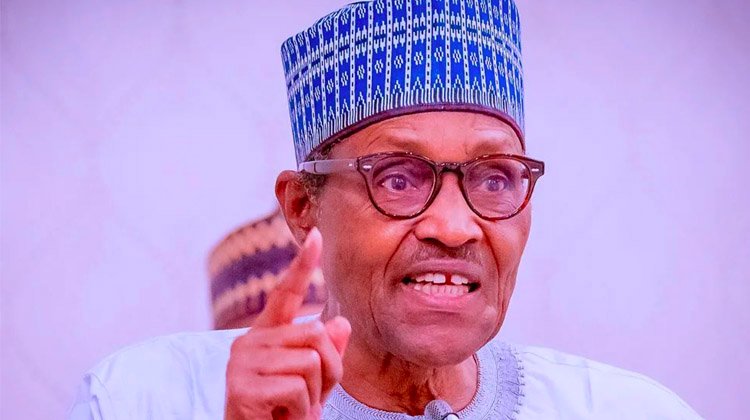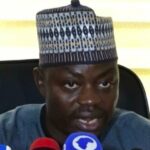
As Nigeria’s insecurity and economic challenges bite harder, STEPHEN ANGBULU examines how the President, Major General Muhammadu Buhari (retd.), prioritises international applause over local victories
On August 3, 2022, Nigerians were irked to their bones when it became public knowledge that the President, Major General Muhammadu Buhari (retd.) splurged another N1.15bn to procure exotic SUVs for the government of Niger Republic. A report published in June by an online news outlet, Sahara Reporters, revealed that the Buhari-led regime approved N1.15bn to purchase 10 Toyota Land Cruiser V8 Sports Utility Vehicles for the Nigerien government.
The record which was sourced from the ‘appropriations’ page of the Federal Ministry of Finance’s website showed that in July 2022, N1,145,000,000 was approved for payment to Kaura Motors Nigeria Limited to supply the SUVs. It also revealed that the President okayed the disbursement since February 2022. In its defence, the Federal Government justified the purchase, saying the vehicles would enhance Niger’s capacity to maintain its territorial integrity.
Responding to queries from State House Correspondents on the issue, the Minister of Finance, Budget and National Planning, Zainab Ahmed, argued that Nigeria’s assistance to Niger was a way of securing its territory from terrorists. She explained that it was only one of several donations from the Federal Government to neighbouring countries.
“Let me just say that, over time, Nigeria has had to support its neighbours, especially immediate neighbours, to enhance their capacity to secure their countries as it relates to us. This is not the first time that Nigeria has supported Niger, Cameroon or Chad, and the President makes an assessment as to what is required based on the request of their Presidents, and such requests are approved and the interventions provided to enhance their capacity to protect their own territories as it relates to security also to Nigeria. Nigerians have a right to ask questions, but also the President has a responsibility to make an assessment of what is in the best interests of the country. And I cannot question that decision,” Ahmed said.
It is understandable when countries support terror-troubled neighbours. After all, armed conflicts have a way of spilling into contiguous communities. More so, for decades, Nigeria has played big brother in sub-Saharan Africa and beyond through several monetary and military interventions to troubled spots outside her borders.
However, when big brother is neck-deep in debt, experiencing record-high inflation, wrestling a six-month labour crisis (over low pay) and bleeding from armed conflicts on several fronts, focus must shift to self-preservation. As the saying goes, you cannot pour from an empty cup. But for years now, Nigeria has been pouring from an empty cup; running on fumes to shore-up an ailing economy. This is evident in her current debt profile.
Soaring debt
Saturday PUNCH reports that Nigeria’s rising debt has propelled it into the World Bank’s top 10 International Development Association borrowers’ list. According to the World Bank Fiscal Year 2021 audited financial statements—IDA financial statement—Nigeria ranked fifth on the list with $11.7bn IDA debt stock as of June 30, 2021.
However, the report for the World Bank Fiscal Year 2022 audited financial statements for IDA revealed that Nigeria displaced Vietnam to ranked fourth on the list, with $13bn IDA debt stock as of June 30, 2022.
Within one fiscal year, the country amassed $1.3bn IDA debt. The $1.3bn debt is different from the outstanding loan of $486m from International Bank for Reconstruction and Development. According to the 2023-2035 Medium Term Expenditure Framework & Fiscal Strategy Paper, the Federal Government has projected that debt servicing will cost N10.43tn by 2025.
This portends a whopping 182.66 per cent rise from the N3.69tn budgeted in 2022 to service debts. Earlier, multilateral agencies and renowned economists have warned the Buhari-led government about the rising cost of debt service. According to them, it will plunge the country into an economic crisis.
Despite these warnings, Ahmed, and the Director General of the Debt Management Office, Patience Oniha, insist that Nigeria only grapples with a revenue challenge, not debts.
Splurging amidst lack
In defence of the government’s spending in Niger Republic, the Finance minister mentioned only Cameroun, Chad and Niger. However, these are only a few of several countries Nigeria has supported from an empty purse.
In March 2022, the Federal Government donated $1m to Afghanistan after the Taliban seized power. Commending the Nigerian government for its donation to the Humanitarian Trust Fund for Afghanistan, the Organisation of Islamic Cooperation said the monies would “add a new momentum to its efforts to contribute to easing the humanitarian situation in Afghanistan and to help in catering to the needs of millions of Afghan people, including women and children.”
Among other things, the Taliban donation showed a total disregard for the religious diversity in a secular state such as Nigeria. Not only did the FG donate money it does not have, it also funded a regime known for its harsh violation of human rights and aversion to education for women and girls.
In May 2022, President Buhari also pledged $3m to kick-start the African Union Humanitarian Agency established to address the suffering of refugees and Internally Displaced Persons in Africa. This was at the 16th African Union Extra-ordinary Session of Assembly of Heads of State and Government on Humanitarian Crises in Africa and Pledging Conference, in Malabo, Equatorial Guinea.
Justifying the move, the President said over five million people had been displaced in the Lake Chad region alone, 70 per cent of them being Nigerians.
However, the Federal Government’s generosity to other countries transcends cash. In February 2021, the President launched the construction of a $1.96bn rail project to Niger Republic. When completed, the project will connect Kano State, North-West Nigeria, to Maradi; the second largest city in Niger Republic located in the country’s South-Central region.
At the virtual groundbreaking ceremony, President Buhari said the rail project would, amongst other benefits, enable the people of Niger Republic to enjoy affordable transportation and create revenue for Nigeria.
He said, “The country would earn revenue through expansion of trade and commerce, while the people of Niger Republic will benefit from ease of transportation logistics at affordable cost in their import and export business.”
Still giving what it does not have, the government, in the second quarter of 2021, received no payment for power supplied to the Republic of Benin, Niger Republic and Togo. The Nigerian Electricity Regulatory Commission disclosed that the countries made no payment for electricity supplied to them from Nigeria in the stated period.
But this is not the first time this is happening. In 2019, NERC revealed that all the three countries did not pay the N32.04bn for the electricity Nigeria supplied to them. According to the USAID’s Power Africa Fact Sheet, Nigeria has enough oil, gas, solar and hydro resources to generate 12,522MW of electric power from existing plants.
However, it is only able to distribute about 4,000 MW for its over 200 million people. As of the time of this report, it is still unclear if Nigeria recouped the monies from the supply of power to its neighbours.
In all these, Buhari foreign largesse despite local tragedies have also become legendary. Also worth noting is the President’s speed of response to international tragedies compared to the widespread killings locally.
In December 2021, President Buhari snubbed calls to visit the northern region amid the rising insecurity in the region. Rather, he travelled to Istanbul, Turkey, alongside his wife, Aisha, and seven ministers to attend the third Turkey-Africa Partnership Summit.
Some northern groups faulted the President’s decision to visit Lagos for the book launch of the All Progressives Congress chieftain, Chief Bisi Akande, barely two days after passengers in a bus were burnt alive by terrorists in Sokoto State.
On Tuesday, July 5, 2022, terrorists opened fire on a convoy of the President’s advance team in Katsina State. The team was en route to Daura, the President’s hometown ahead of the Sallah celebrations when terrorists ambushed them.
On the same day, gunmen attacked the Kuje correctional facility in the nation’s capital. The nocturnal attack saw the release of over 600 high-profile Boko Haram suspects.
According to the Minister of Defence, Bashir Magashi, Boko Haram suspects in custody escaped from correctional centre. At a time when the nation was reeling from shock, the President travelled to Dakar, Senegal, for a development summit, but not after visiting the site of the Kuje attack where he expressed disappointment at the nation’s intelligence system.
It suffices to say that despite the disappointment, no known sacking or replacements occurred in the Correctional or Intelligence Service since that time. Also, checks by Saturday PUNCH revealed that about 35 soldiers were killed between May and July, 2022, a development some retired generals and security experts described as unacceptable.
On May 10, six soldiers of the 93 battalion, Takum, lost their lives when suspected terrorists ambushed a convoy carrying the commanding officer of the Battalion en route to Jalingo, the Taraba State capital. Nine days after the incident, the President jetted out to Abu Dhabi, the United Arab Emirates to condole with the new President, Sheikh Mohamed bin Zayed Al Nahyan, over the loss of his predecessor, Sheikh Khalifa Zayed Al Nahyan.
On July 22, terrorists attacked some officials of the 7 Guards Battalion of the Nigerian Army Presidential Guards Brigade, killing eight soldiers, including a captain and a lieutenant. Three days later, the President departed for Liberia where he delivered a lecture on West Africa’s security, free and fair elections and respect for rule of law. There, he joined other heads of state as Liberia marked a special independence anniversary, commemorating 175 years of self-rule.
On Saturday, August 6, 2022, Buhari ordered an immediate investigation into the killing of six Nigeriens in the country’s South-East. This came barely 48 hours after two police inspectors and two company drivers were reported killed in an attack by gunmen on the Royal West Africa Ceramics Company in Ajaokuta, Kogi State.
The Coordinator, Northern Alliance Movement, Yahuza Getso, said while it was necessary for Nigeria to safeguard its neighbours for its own advantage, Buhari might not be properly informed about the happenings in the country.
He said “When your neighbourhood is not at peace, you will never be at peace. I am sure Nigeria has its development objectives. Part of those objectives is to improve its working relationship, partnership and collaboration with immediate neighbours to deal with the security situation. Niger Republic and other neighbouring countries are really contributing in terms of the proliferation of arms and money laundering, among other things. So, these may be one of the reasons for the attention on the country.
“But it is now clear to all Nigerians. Kaduna State governor, Nasir El-Rufai, told the public that President Muhammadu Buhari was not aware that terrorists threatened to kidnap him until he reached out to him. This has exposed that our security system has failed, and probably Buhari has not been briefed. If at all, he’s aware, he’s getting briefed, he is supposed to have had that information on that day.”
Getso accused those close to the President of not providing him enough information for decision making.
“We can say that those who are around the inner circle of the president, his media aides, National Security Adviser and other leaders, have not been briefing or providing the right information to him. He may not be the one reading the newspapers. It could be his secretary or someone else.
“So, that is why it is always when there are issues that he needs to condemn for public consumption but not for the fact that he knows what’s supposed to be the next thing,” he added.
Looking good outside
Speaking on the issue, the Executive Director, Adopt a Goal Initiative, Ariyo-Dare Atoye, argued that the President must build a home-based goodwill before seeking good image outside. He noted that rather than offering cash support to neighbours, Nigeria could offer home-made products to promote local businesses.
Atoye said, “President Buhari is someone who wants to be seen as one of those presidents, international figures with a superb standing. He is enamoured by what former president Olusegun Obasanjo is doing globally. But he has forgotten the principle of ‘charity begins at home’, which is a universal application that you have to show capacity at home. Your country must be in good stead before you can project your country to the world. Those are the things that really count. Not what you do by using the resources of your country to curry favour from neighbouring countries or other nations.
“He is always quick to condemn terrorist attacks or sympathise with other nations. But from the same President, one hour, 24 hours, 48 hours there would be no response about such incidents after their occurence.”
Atoye added that one of the best ways to play the role of a big brother and help struggling nations was by supplying them with Nigeria-made products.
“At a time when the Academic Staff Union of Universities is on strike, when a lot of things are going south in Nigeria, Mr President has found it so convenient to give a whopping N1.14bn to Niger Republic to buy exotic cars for politicians.
“What if President Buhari had purchased cars from companies assmbling vehicles in Nigeria and give them to Niger Republic? That would have been very good for the country. These issues should occupy our minds as we move into 2023. It should be how to elect a president who will not start charity from abroad,” he stated.
‘It’s diplomacy’
Meanwhile, the Director-General of Voice of Nigeria and foundation member, All Progressives Congress, Osita Okechukwu, said the President’s seemingly unbalanced interest in foreign matters was only part of efforts to protect Nigerians abroad.
He said, “As a statesman, when an individual who is not a Nigerian is killed on your soil, you must condemn that to send a signal to the home country because we have other Nigerians living in Niger Republic. If you don’t do so, they will take it that it doesn’t concern you or that you’re complicit. It’s reasonable that such matters are properly addressed. Otherwise, you’ll endanger other Nigerians abroad. It doesn’t mean charity begins abroad. By singling out Nigeriens, he (Buhari) was also trying to protect Nigerians. That is diplomacy.
“On the issue of the SUVs, there is a saying that you don’t wait to fill your tummy before offering your neighbour the chance to join you on the table. That’s not diplomacy. It’s easy to ask why the government is buying SUVs when ASUU is on strike. It’s good to take care of the domestic front but at the same time, don’t forget that they (Niger Republic) have helped us to contain the insecurity. Else, we would have been in a worse state.”
Okechukwu noted that the President had been responsive in his condemnation of terror attacks and commiserating with victims through his statements.
Okechukwu added, “Mr President is lavish in his condemnation of terrorist activities across the length and breadth of the country.
“You can google his uncountable condemnations of various terrorist acts and uncountable condolences and commiserations with the bereaved. So, whether he steps out to visit or not is a different matter. Every president has their own or manner of approach to events.”





